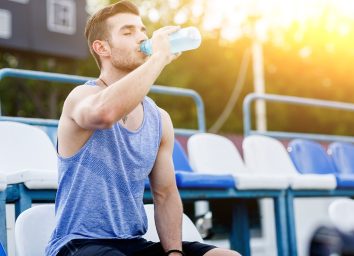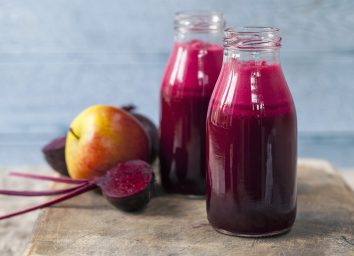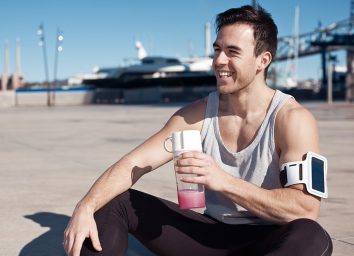The Recover 180 Drink Will Change How You Hydrate
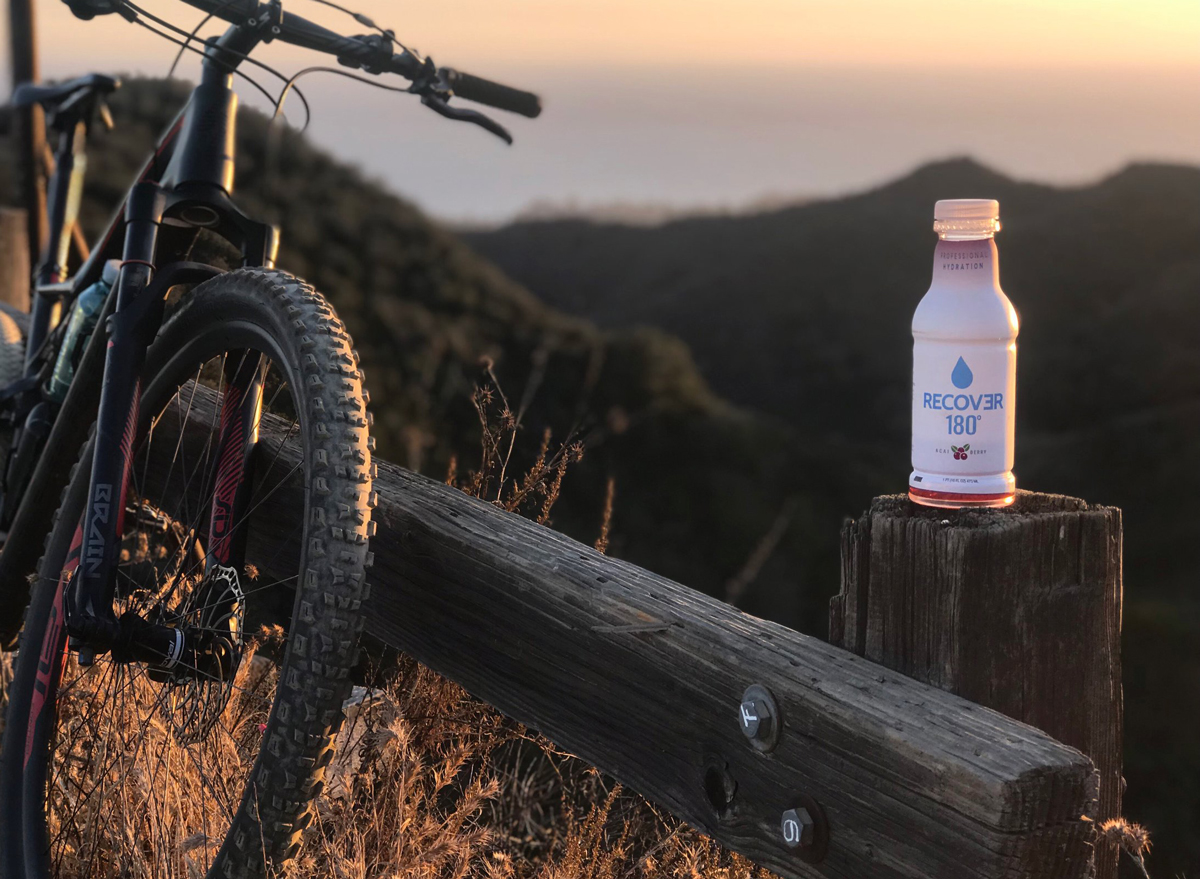
When you work out, you’re always accompanied by your trusty water bottle. But then you see other gym goers sipping various shakes and sports drinks and you start to wonder, “what should I be guzzling after a sweat session?”
To stop your wondering, we did some research and found a new beverage that’s low in sugar and calories that you’ll want to test for yourself after your next intense workout.
RECOVƎR 180°, a new brand started by one of the co-founders of Casamigos Tequila, is a line of “premium electrolyte beverages” with hydration in mind. Because no sports drink is built the same, we wanted to dig deeper into the drink’s hefty list of nutrients.
Recover 180 Nutrition
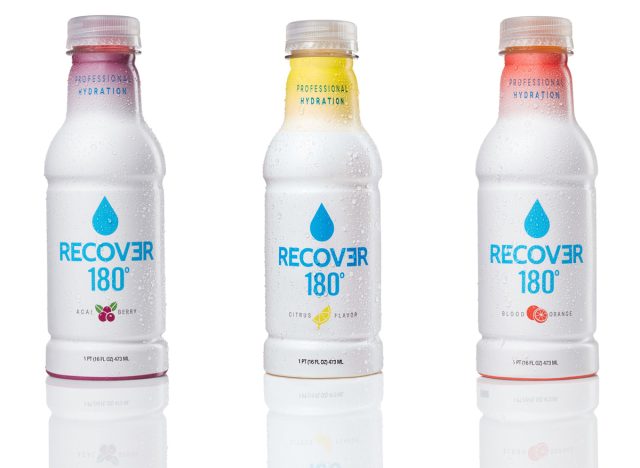
The drink comes in three flavors with the same nutritional value: Acai Bery, Citrus, and Blood Orange. Each drink only has 60 calories per 16 fluid ounce bottle and hold 11 grams of sugar. For scale, Gatorade Thirst Quencher contains a whopping 34 grams of sugar.
You’ll notice a significant sodium content of 460 milligrams. While the sodium concentration sounds high in a traditional nutritional context, sports drinks include this nutrient because it’s lost in sweat during intense exercise. However, Recover 180 includes significantly more sodium than its competitors—Powerade’s Mountain Berry flavor has 225 milligrams while Zico Coconut Water has 110 milligrams in the same serving size.
The American College of Sports Medicine (ACSM) suggests the average person consume 500-700 milligrams of sodium per liter of fluid when exercising longer than an hour. For a 16 fluid-ounce beverage like Recover 180, that’s 237 to 331 milligrams. So, the drink is certainly on the higher end of the sodium spectrum. This suggests that this drink might not be your go-to after a quick, 20-minute HIIT session, but it would perfect for someone who is going on a 2-hour mountain bike ride.
The ACSM also recommends your recovery drink include 4-8% carbohydrates (like sugar) to help delay fatigue and provide your body with a fuel source. Recover 180 is on the low end of this spectrum, providing only 12 grams of carbs whereas the ACSM would recommend at least 18 grams. While the drink is low in sugar, that allows for room to supplement your beverage with an edible source of carbs, either by snagging a banana or a protein bar.
Ingredients
Recover 180 beverages contain a host of functional ingredients that they categorize as energizing (vitamins B), mentally stimulating (Ashwagandha, Guarana Berry, and Panax Ginseng), hangover and liver protection (Milk Thistle), immune-boosting (vitamin C), muscle fatigue prevention (L-Glutamine, potassium), and hydration (sodium, potassium, and magnesium).
While many of these additives are non-essential to your athletic performance, they may give your workout a bit of a boost. The National Institutes of Health Office of Dietary Supplements recently published a fact sheet that reviewed exercise supplements and athletic performance. They concluded that L-Glutamine may help with recovery of muscle strength and reduce muscle soreness after exercise.
On the other hand, the NIH concluded that ginseng and antioxidants like vitamin C have no benefit for physical performance.
Though we still think this could be considered a good option for a sports drink compared to others on the market, the real question is, do you actually need it?
Who Really Needs a Sports Recovery Drink?
We asked Samantha Cassetty, MS, RD to weigh in on the debate. “One of the places I see people slip up is to use a sports recovery drink when it’s not needed. The nutrients in recovery drinks are typically designed for really sweaty, extended workouts (more than an hour) or workouts in hot, humid conditions. A typical spin class in a room with the AC blasting wouldn’t necessarily call for a sports recovery drink.”
If you’re doing a 90-minute Bikram yoga session? Grab a Recover 180. After a short lift session? Maybe not.
An Alternate Way to Refuel After a Workout
Cassetty recommends another plan for active people.
“What I usually suggest instead is strategic snacking and meal timing. If you’re working out first thing in the morning, have something light (such as a banana) before you go. When you return, have a protein-rich breakfast that includes produce to naturally supply the carbohydrate, potassium, and magnesium often found in replacement drinks. Something like a smoothie made with Greek yogurt, spinach and mango would hit the mark. For people who don’t have time to make smoothies, a grab-and-go option (like those from Smoothie King) can be a great choice.”
While eating your electrolytes is one way to replenish lost nutrients, Cassety still recommends you sip on something. “Since workouts do require hydration, it’s also a good idea to drink water before, during, and after the gym.”
Drink This!
If you’re into long bike rides, long-distance running, hiking for hours, or intense exercise sessions, Recover 180 is a natural solution to your hydration woes. If you’re not a hardcore exerciser, that doesn’t necessarily mean you have to pass on Recover 180—simply drink half the bottle or cut it with water to cut back on sodium.
Buy it now! $32.99 per 12-pack, Amazon
